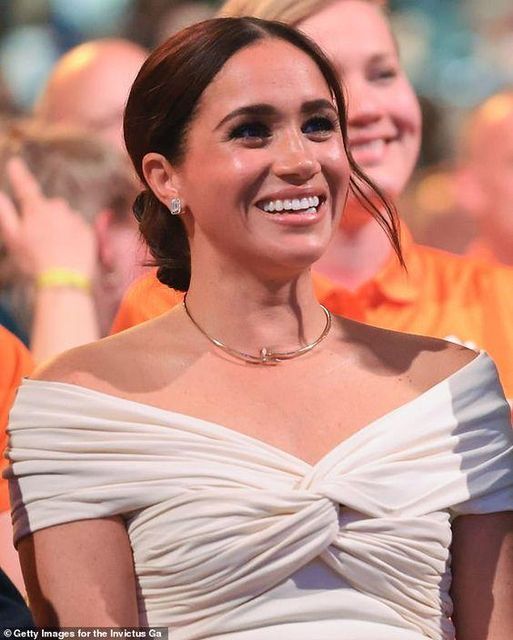Meghan Markle has always been a figure who sparks strong reactions, both positive and negative, ever since she stepped into the global spotlight. When she married Prince Harry, many saw her as a breath of fresh air—a modern, relatable woman with a warm smile and a laid-back California vibe. Her background as an American actress, coupled with her approachable and friendly demeanor, made her seem like the quintessential “girl next door.” Yet, her entrance into the British royal family also stirred up intense debates and divisions among the

For some, Meghan’s charm lies in her ability to maintain her identity despite the immense pressure of royal life. After moving back to California with Harry, she has embraced a lifestyle that reflects her roots—balancing between the glamor of Hollywood and the grounded, easygoing persona that once made her a beloved actress. Meghan is often seen in casual outfits, engaging in community work, or speaking about causes that matter to her. Her willingness to open up about mental health, race, and the struggles she faced as a new member of the royal family has endeared her to many who see her as a brave, down-
However, not everyone sees her in such a favorable light. Meghan’s critics argue that her departure from royal duties, along with her and Harry’s public disclosures, has fractured relationships within the royal family and stirred controversies. To some, she is seen as a divisive figure, one who challenges the traditional norms and expectations of what it means to be a member of the British monarchy. The choice to step back from royal duties and relocate to the United States with Prince Harry was perceived by some as turning her back on royal responsibilities. This has led to intense debates over whether she is a misunderstood trailblazer or someone who intentionally sought to disrupt the status quo.
Despite the differing opinions, Meghan’s supporters celebrate her authenticity and believe that her “California neighbor” persona is precisely what makes her so refreshing. They argue that she brings a modern perspective to a royal institution that has often been seen as distant and detached from everyday struggles. Her efforts in philanthropy, from advocating for gender equality to supporting charitable organizations, align with the values she promoted even before marrying Prince Harry. To them, Meghan represents a new era of royalty, one that is more relatable and willing to engage with issues that affect ordinary
At the heart of the division surrounding Meghan is a clash of expectations—between the traditional image of royalty and the evolving desire for authenticity in public figures. Those who admire Meghan see her as someone who never conformed to rigid roles, choosing instead to carve out her own path. Her ability to transition from the British royal life back into the California sunshine has been a testament to her resilience and self-assuredness. For her detractors, however, this same transition is seen as a rejection of a centuries-old institution, creating a rift not only within the royal family but also among those who follow it closely
Whether viewed as a revolutionary force within the royal narrative or a divisive outsider, there’s no denying the impact Meghan Markle has had. Her journey from being an actress in Los Angeles to becoming a global figure who champions social change has been anything but conventional. And as she continues to navigate her role in the public eye, she remains a topic of fascination—an icon who embodies the tension between tradition and modernity. As the “girl next door” who married a prince, Meghan’s story is one that continues to captivate and challenge the world’s perceptions of what it means to be bo
